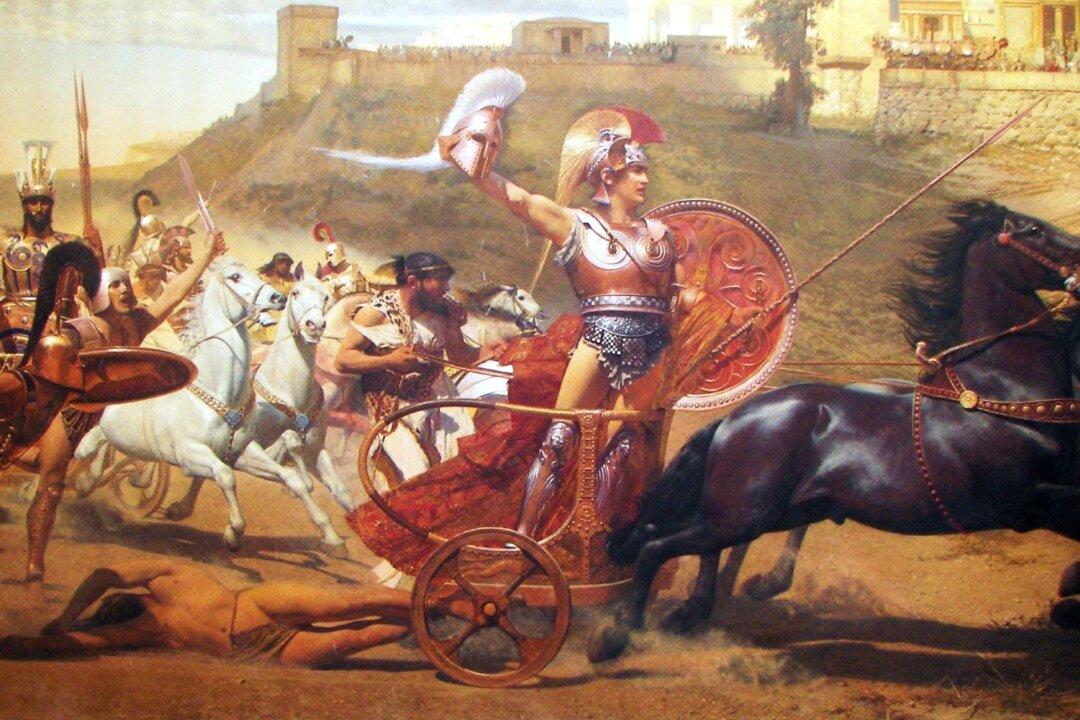The “Aeneid” by the Roman poet Virgil is an epic poem in 12 books that tells the story of the foundation of Rome from the ashes of Troy. It was probably written down in Rome from 30 B.C. to 19 B.C. during the period of the Emperor Augustus.
The poem is named after the Trojan hero Aeneas, the son of Venus (Aphrodite in Greek mythology) and Anchises, a Trojan aristocrat. Aeneas leads the survivors from the sack of Troy through the Mediterranean, and ultimately to the site of (future) Rome. The “Aeneid” is, therefore, a classic foundation narrative.


